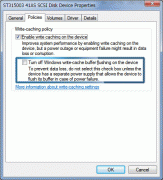Ok, this is a bit strange. Maybe I'm seeing things.
I've created a new database in MC14, starting from scratch and reindexing everything. Which would include some 50000+ images. Now MC started creating thumbnails and, while I can't say on what's working (feature request to replace the "building thumbnails" with more details), I'm guessing it's dealing with the pics since everything goes mighty fast. Even if not it doesn't really matter. After going for awhile, say anytime between 500 and 1000 thumbnails the whole system stalls. Not really frozen (can move mouse, move windows already opened), but can't do any new activity, open other programs, etc (task manager included).
This is Win7. So if I insist on clicking away inside MC, its whole window becomes white semi-opaque (you know the thing) and I'm offered to wait or kill the program. Well, that's not recommended, I know, but even if I try nothing will happen. Pretty much no new program can be run, no old program can be killed. After that I've started the resource manager on the side and waiting for the next time it happen. When it did, the "highest active time" for the disk (C:) shot to 100% and it stayed there. Usually it takes between 30 sec to 1 min to recover. BTW when it recovers everything keeps on going like nothing happened.
OK fine, this disk is about to die I'm telling myself. Run a test, run a second test, run a third test - nothing. Nevertheless I've reinstalled MC to another drive,
with all its things (libraries, thumbnail folders,
everything, they don't reside anymore in Program Files or in C:\Users\[insert craptastically long path here]; that was really *cough* easy BTW - subject for another discussion). Guess what, same thing happens with this drive too. Thumbnailing going OK for some time than stall, than another 1000 go OK, than stall, then... what the hell???
Then I go in an check the highlighted option in the screenshot below for the HDD in question (default is off like I'm showing).

And everything goes fine, no stalling anymore. Now. I expertly know what that option does. It's a... bug if you want, on short - the system functions better (faster) but less secure with the bug (option checked), and noticeably slower but secure with the bug fixed (option unchecked). Hence even the Windows devteam allowed for an option so the users can do whatever they want on their own risk.
But it never affected me before - although this "before" is unclear I can't pointed it in time. Before Win7 maybe. My question is - any recent changes in MC (threading, I don't know, the ways it writes to its database,etc) coupled with the "feature" I highlighted above, might lead to the described behavior? If that's not the case, then I have to wonder if MS modified the treatment for the flushing buffers thing between XP-Vista-Win7.

 Author
Topic: Buffer flushing problem? (Read 2798 times)
Author
Topic: Buffer flushing problem? (Read 2798 times)

